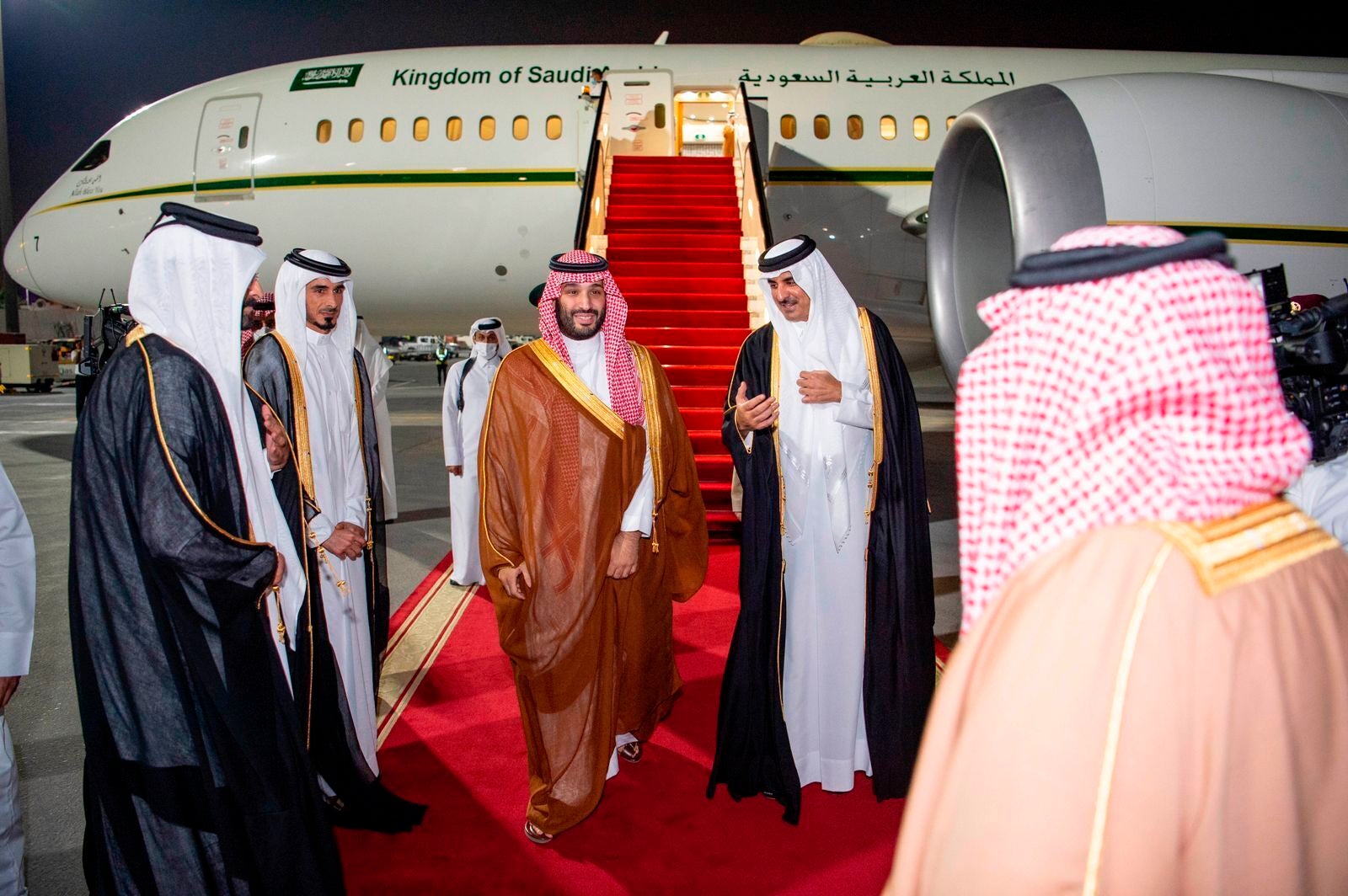Saudi crown prince in 1st visit to Qatar after embargo ended
Saudi Arabia’s crown prince is in Qatar for the first time since the kingdom rallied other Arab states to end their yearslong rift and embargo on the tiny Persian Gulf country

Your support helps us to tell the story
From reproductive rights to climate change to Big Tech, The Independent is on the ground when the story is developing. Whether it's investigating the financials of Elon Musk's pro-Trump PAC or producing our latest documentary, 'The A Word', which shines a light on the American women fighting for reproductive rights, we know how important it is to parse out the facts from the messaging.
At such a critical moment in US history, we need reporters on the ground. Your donation allows us to keep sending journalists to speak to both sides of the story.
The Independent is trusted by Americans across the entire political spectrum. And unlike many other quality news outlets, we choose not to lock Americans out of our reporting and analysis with paywalls. We believe quality journalism should be available to everyone, paid for by those who can afford it.
Your support makes all the difference.Saudi Arabia’s crown prince was in Qatar on Thursday, his first visit since the kingdom rallied other Arab states to end their yearslong rift and embargo on Doha.
Crown Prince Mohammed bin Salman s visit also marks his third stop in the region this week as the Saudi heir to the throne tours the six U.S.-allied Gulf Arab states that make up the Gulf Cooperation Council. His meetings with Arab rulers are aimed at fortifying the kingdom’s alliances as rival Iran resumes nuclear negotiations with world powers.
The visit is particularly significant because last year at this time, the neighboring states were in the midst of a diplomatic standoff that had frayed familial ties in the region, fractured the close-knit GCC and sparked churlish barbs in state-linked media as accusations of hacking and damaging leaks swirled.
Angered over Qatar's support for Islamist groups like the Muslim Brotherhood and its ties with Iran, the four nations of Saudi Arabia, the UAE, Bahrain and Egypt severed ties with Qatar in mid-2017. They sealed their airspace to Qatari flights, shuttered Qatar's only land border and expelled Qatari citizens from the quartet of nations. The move pushed Qatar closer to Turkey and Iran, which rushed to support the tiny-but-wealthy nation as it navigated the diplomatic assault.
The regional standoff concluded earlier this year with an agreement signed by Arab leaders in Saudi Arabia. Ultimately, Qatar did not give into a list of demands the quartet had made, including that it close down its Al Jazeera news channel and hand over wanted Islamists residing in exile.
Rather, Qatar has emerged a powerful mediator in the region. As host to the Mideast's largest U.S. airbase, Qatar played a major role during the U.S.-led evacuation from Afghanistan over the summer and also in facilitating contact with the country's Taliban rulers following the closure of Western embassies in Kabul.
Qatar is also well positioned to play a role in easing tensions between Saudi Arabia and Turkey. Prince Mohammed s visit to Doha comes just days after Turkish President Recep Tayyip Erdogan was in Qatar for meetings. Relations between the two have been rocky since the 2018 killing of Saudi critic Jamal Khashoggi in the Saudi Consulate in Istanbul.
Upon his arrival to Qatar late Wednesday, Prince Mohammed was greeted on the tarmac with an embrace from ruling Emir Sheikh Tamim bin Hamad Al Thani.
He arrived from the United Arab Emirates, where he shook hands with Abu Dhabi's crown prince and strongman before their meeting. The formality of their greeting — in contrast to the embrace he received in Qatar after stepping off the plane — and the decision to make the UAE his second stop in the tour after visiting Oman spotlights the underlying tensions that have emerged in the Saudi-UAE relationship.
Despite a lengthy joint statement expressing their commitment to economic prosperity and security at the conclusion of the prince's visit in the UAE, the traditional allies have increasingly divergent foreign policy stances and are in a heated competition for foreign investment and regional clout.
After Qatar, the Saudi crown prince is to conclude his tour with stops in Bahrain and Kuwait.